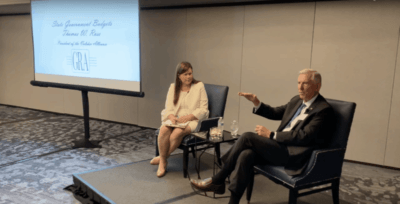

Toward the end of a column here a month ago, I inserted an observation that North Carolina “needs a stronger understanding of its economic realities.” Quite coincidentally, along has come an analysis of the “future of work” that could serve North Carolinians in addressing the profound economic changes afoot and, not incidentally, the role of education.
The McKinsey Global Institute, the research arm of the worldwide management mega-consulting firm McKinsey and Co., has examined job trends in two dimensions: types of work and local economies. The McKinsey projection of national trends clearly apply to North Carolina.
For example, the McKinsey analysts project that 60% of net job growth is likely to cluster in 12 mega-cities and 13 “high growth hubs, plus their peripheries’’ through the next decade. The study places Charlotte and Raleigh among the nation’s high-growth hubs. Similarly, the state Department of Commerce projects that the Charlotte and Raleigh regions would account for 60% of North Carolina’s job growth to 2026 – 227,000 out of 389,000 anticipated jobs. (The McKinsey report places other North Carolina cities in various categories.)
While describing job growth over this decade as “a tale of two Americas,’’ the McKinsey analysts also assert that differences in local economies “are more nuanced than a simple rural-urban divide.”
“The trends outlined in this report could widen existing disparities between high-growth cities and struggling rural areas, and between high-wage workers and everyone else,” they write. “But this is not a foregone conclusion. The United States can improve outcomes nationwide by connecting displaced workers with new opportunities, equipping people with the skills they need to succeed, revitalizing distressed areas and supporting workers in transition.”
The McKinsey report suggests that the economic process of “creative destruction’’ remains in play — that automation will diminish jobs in food service, retail sales, and office work but that technological developments will open up new jobs for people with knowledge and skills. “What lies ahead is not a sudden robot takeover but a period of ongoing, and perhaps accelerated, change in how work is organized and the mix of jobs in the economy,” says the report.
The McKinsey report takes note of the recent increase in four-year degrees among young adults, across the demographic spectrum of whites, blacks, Hispanics, and Asians. Such degrees offer “a ticket to upward mobility,’’ say the analysts, who also call for “stronger foundational skills’’ in K-12 schools and for “much wider’’ pathways to work through post-secondary credentials. They point approvingly to early college high schools.
“Employers will be the natural providers of training and continuous learning opportunities for many workers,” says the report. “But millions who need to switch employers or change occupations will need training options outside the workplace. All levels of government, nonprofits, education providers, and industry associations can play a role here.”
What’s more, say the McKinsey analysts, “In this period of technological change, the United States will need to look at modernizing and strengthening the social safety net to support workers as they transition between jobs. Some of the people most likely to be affected are already living paycheck-to-paycheck. For them, even a short period of disruption could provoke tremendous stress.”
All in all, the McKinsey report spells out daunting challenges: how to upgrade the existing workforce while preparing young people with knowledge and skills for what’s already in motion; how to keep metropolitan regions healthy while narrowing income disparities, and also connect rural people to opportunities. It’s not evident that the state’s recent combination of tax-cutting, tight-budgeting responds to the challenges posed by the McKinsey analysts.
North Carolina, of course, has had experience in marshaling public and private sector leadership in transitioning its economy. The state is no longer defined by tobacco, textiles, and furniture, as it was not so long ago. Now, the challenge is whether the state can summon again the leadership and the creativity in matching the public investments in research and education that propelled the “future of work.”


